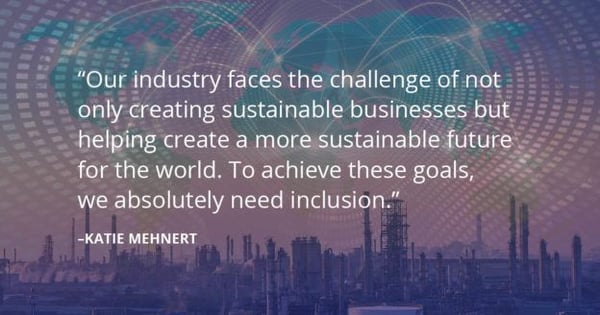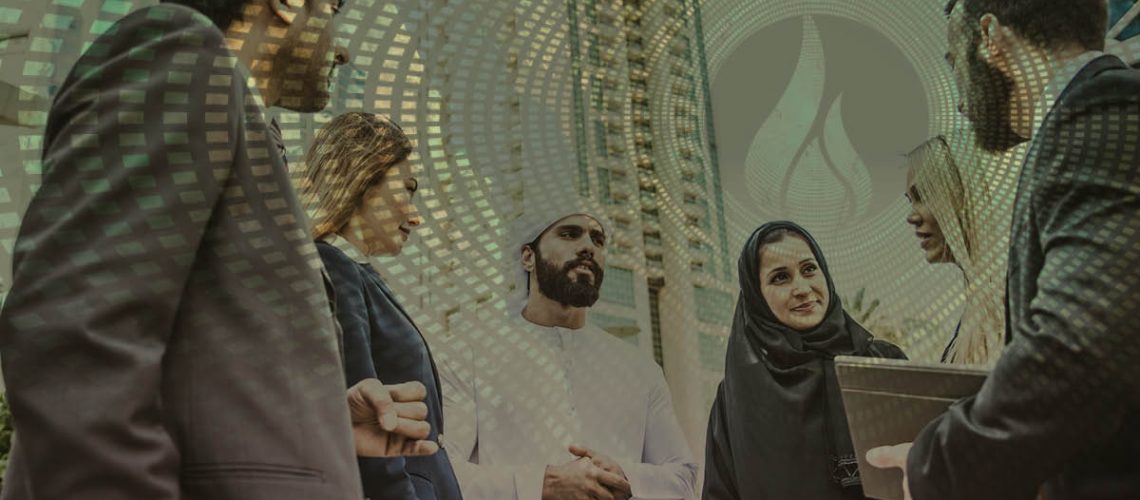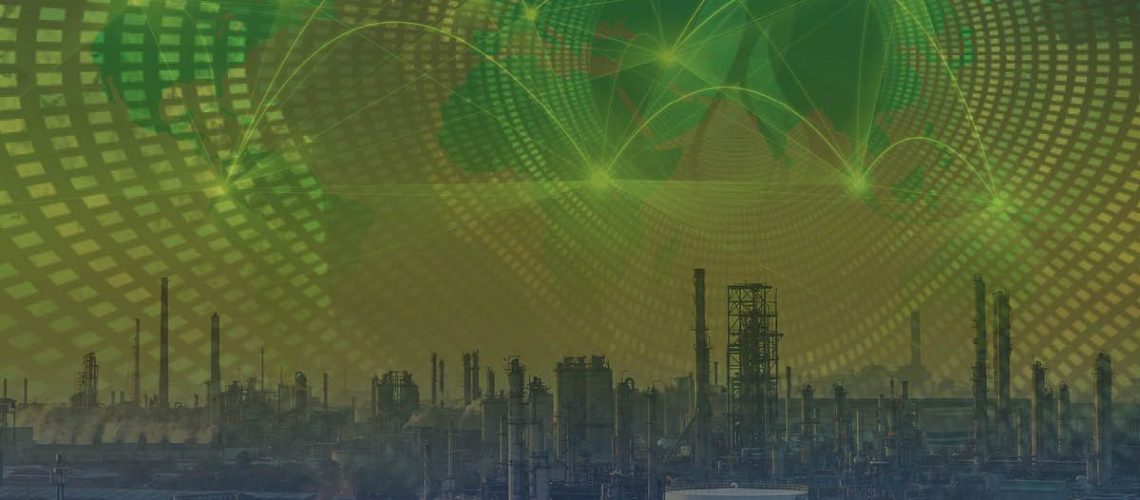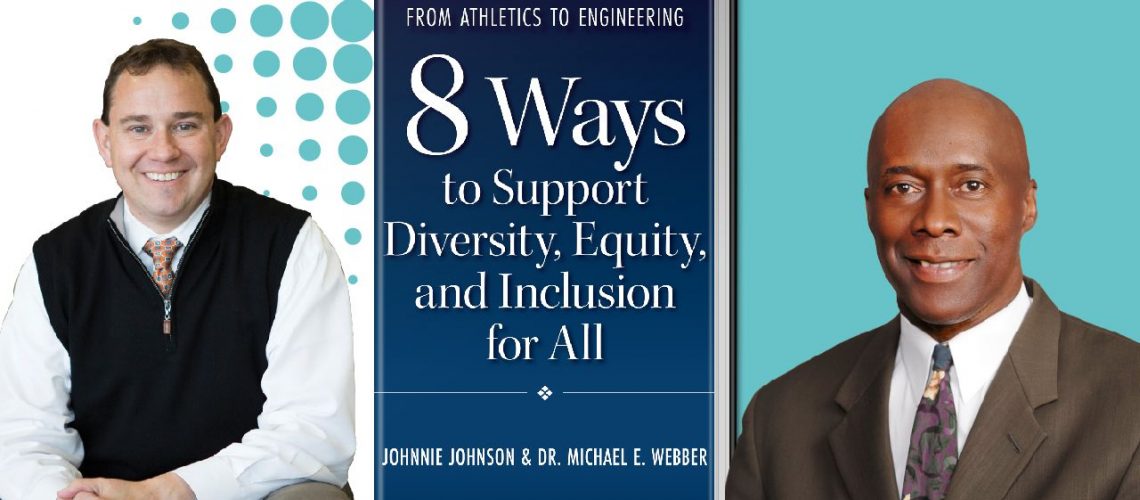Read the speech in Arabic here.
In case you missed it, the following speech was delivered by Katie Mehnert at the International Petroleum Technology Conference (IPTC) diversity and inclusion workshop "Our Journey Towards Sustaining an Inclusive Culture" on January 12, 2020, in the Kingdom of Saudi Arabia. The companion guide is available for download here.
Thank you. It’s an honor to speak here today.
I am a former safety and environment leader with BP and Shell having spent most of my career helping our industry achieve breakthrough performance and culture after periods of crisis. And in that experience between the field and the office, you could say I became truly fascinated by what we do for man and womankind. Our industry is a relevant force in our world and will be for decades to come.
Seven years ago, while at BP, I was on a business trip to London. I chose to read this new book by Facebook COO, Sheryl Sandberg, called Lean In. Lean In has sparked a real conversation about the role women are playing in business and society. There was one question the book left with me that stuck with me: “What would you do if you weren’t afraid”?
On my trip home to Houston, we were grounded at Heathrow airport in London. For 20 hours. No devices were allowed as we sat there on the plane, so it forced me to do some real deep thinking. Armed with this powerful question, that’s when I had the inspiration to create a global community to help transform the energy industry. A community that would provide pathways for women to join and become leaders in our companies. A community that would help engage outsiders from other industries to be attracted to what we do. This would be a community and movement that would be committed to all kinds of diversity -- ethnicities, cultures, and generations and all forms of energy.
I did what many women do. I scribbled the idea on the back of a napkin and said “one day”.
In 2015 as oil was making its epic fall, I did what made me most afraid and I launched this idea.
I called it Pink Petro. And today, I’m happy to say, we are a global community, a woman owned enterprise, creating exciting, positive changes. Our members include many of the largest oil and gas companies, many of you are in the room. We also have renewable energy companies and the power and services sector involved. We’re bringing people together to build the future of energy.
At the center of all this is a commitment to inclusivity. I talk, focus, and write about the business imperative for inclusivity constantly. So when the organizers of IPTC 2020 asked me to discuss this topic today, I of course jumped at the chance.
But before I go into that, there’s more you should know about me. I live in Houston, Texas, which many call the energy capital of the world. (I call it the Energy Capital of the West since Saudi is clearly the Energy Capital of the East) I am also a very patient and very slow forever-training marathon runner, a wife and a mother.
A few years ago, my family lost our home during Hurricane Harvey, which devastated West Houston’s Energy Corridor. I also lost my office. Both were destroyed by forced reservoir flooding to spare Houston from a larger catastrophe. As the water filled our home, I carried my daughter, who at the time was 6 years old, in my arms in a rescue boat to safety. It was a very traumatic experience.
Experts say Hurricane Harvey’s strength was due in part to the changes in our climate. So I know first-hand of the damage that can be done. The damage to life, property, businesses and economies. After a decorated career in energy, I lost a lot of what I created for my family and so did many of my neighbors whom all work in our industry.
Our industry faces the challenge of not only creating sustainable businesses but helping create a more sustainable future for the world. To achieve these goals, we absolutely need inclusion.
Deep disparities define today’s energy world: oil markets, geopolitics, carbon emissions and climate targets, the promise of energy for all and the lack of electricity access for nearly 1 billion people around the world. According to the International Energy Agency, the challenge today is one of scale: global energy use is ten times higher than in 1919 and it is growing. Driven by higher energy demand in 2018, global energy-related CO2 emissions rose 1.7% to a historic high of 33.1 Gt CO2.
But I know the answer is in front of us: Human ingenuity is the way to get there.
Research shows when people with different experiences come together and are given a chance to share perspectives, they develop new strategies. Positive change follows. Businesses innovate at a faster rate. And to build sustainable businesses, we need to innovate at a faster pace than ever.
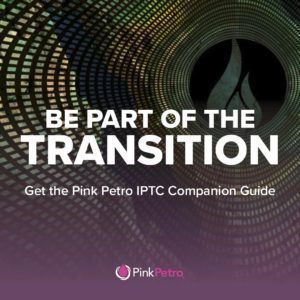
But I don’t have to tell any of you this. Saudi Arabia, through vision 2030, is witness to its own rapid changes. And, since 2018, women are now driving, and travel restrictions have been lifted. In this new year, Saudi Arabia is host to the G20 summit which brings together leaders from every continent to collectively address the greatest challenges and bring forward impactful solutions to the world. So, change happens when we bring people together and socialize challenges and work together to co-create the future we want to see.
And our industry knows change and knows how to make change stick. Safety is a core value. When we are safe, we are more sustainable. But actually many years ago I took a deeper look at what created safer work culture, and it was inclusion. Inclusive work environments drove unique outcomes and breakthrough performance.
So the case for inclusion is clear. We need new, better ways to meet the unprecedented demands for both energy and sustainability. Right now, there’s a brilliant girl in Africa, a brilliant boy in Asia, a brilliant teenager in the midwestern United States, a brilliant student right here in the Middle East, and a brilliant schoolteacher in Europe who will have the next big idea -- or a piece of the next big idea. When we bring great people together, they can create changes we don’t foresee.
Put simply, inclusivity fuels positive change. Oil and gas became the world’s biggest industry when pioneers of our industry tried new things. Now, as the world transitions to new forms of energy, we need to apply the lens of inclusion.
Inclusivity also brings tremendous business benefits in immediate ways.
Research by some of the world’s most respected experts found that a greater balance in the workplace can deliver higher returns with less volatility and more conservative balance sheets.
A few years ago, the World Economic Forum published a call to action for the oil and gas industry aimed at ending the gender gap. It was signed by 22 companies, including Saudi Aramco, Shell, BP and others.
These companies noted that women make up less than 20% of the workforce in the industry, and the numbers are even lower at senior levels. The statement said fixing this is -- quote -- an important business imperative.
Following that call to action, Pink Petro gathered stakeholders from across the sector to provide strategies on how to achieve this. The steps they recommend include executive commitment; setting specific, measurable goals and keeping to them; and working to build the talent pipeline is educated in the subjects and skills of the future.
You can use your phone camera to scan this QR code to connect to the website; the ITPC companion guide is available for download here.
All this applies not just to gender equality, but to diversity of all kinds. Businesses across numerous industries are focusing on diversity like never before. And they’re not doing so to be nice! They’re doing so because it works.
People are drawn to companies and industries that make them feel welcome and included. And younger people are growing up in diverse and inclusive communities. They have more diverse, inclusive groups of friends. They want to work at places that offer similar environments.
In late 2019, Pink Petro held a summit on the Energy Workforce of the Future. We invited leaders and participants to offer constructive ideas and proven strategies to achieve diversity and inclusion. The result was tremendous. Together, we produced an extensive report offering critical steps businesses throughout our industry can take.
As a result, four outcomes are a part of our remit to work in the next 12-24 months. Our biggest area of need is defining an “Industry Value Proposition”, where its clear the benefits of working in energy.
For example, among the dozens of pointers for achieving inclusivity are: coaching for leaders in becoming more emotionally intelligent; managing through a personal touch rather than through data; prioritizing personal connections within work; providing real-time feedback; building multicultural awareness; instilling values; celebrating role models; and engaging in storytelling to highlight positive examples of inclusion and flexibility. All this and much more is available to you, in your packets today and downloadable and shareable at our website. And our Twitter feed, @PinkPetro, will share links as well.
So when it comes to attracting and retaining talent, we have some catching up to do. It’s time for our industry to show people all over the world that we are a fantastic place to work. That we can offer them a great life. And that we can be an important part of the causes they care so much about. A survey found that two-thirds of oil and gas executives say their companies can and want to be part of the solution to climate change. We need to let facts like this be known. I even argue that our businesses should invite climate activists to come join us. To take all that energy and passion and contribute to us building an energy future together -- what I call Energy 2.0.
As part of making our organizations more diverse and inclusive, Pink Petro has launched a careers website, Experience-dot-Energy. Companies across the energy sector are using this site to post jobs, share inspirational stories and more.
While attracting a diverse workforce is step one, the second step is to create inclusive workplace cultures. This means establishing psychologically safe environments in which everyone feels welcome to share experiences, introduce new ideas, challenge long standing environments, and experiment with new ways of doing things. It means making sure that women and men, of all backgrounds, do not experience bias. As we did for safety culture, it means moving from making inclusion a priority to a real value. Values don’t change. Priorities do.
Making all these important changes happen requires a new mindset. We must go to work every day determined that every decision our organizations make will be in alignment with these goals. Every action, every deal, every public statement, every event -- and, perhaps most importantly, everything we do that impacts hiring and promotions.
This is key for keeping ourselves accountable and ensuring we make progress.
At Pink Petro, we’re doing that by using the U.N. Sustainable Development Goals as guideposts. The United Nations lists 17 goals as a blueprint to achieve a better and more sustainable future for all. I chose five of these goals for our organization to focus on primarily in 2020. Everything we do this year will align around: gender equality; affordable and clean energy; decent work and economic growth; reducing inequalities and climate action.
As leader, it’s up to me to make sure that we move forward on all these fronts. And in the spirit of inclusiveness, we encourage all the members of our global community -- and all of you -- to share ideas about how to best achieve these goals.
Industries move forward when they have a sense of community. Despite all the competition, we face the same challenges, and we’re stronger when we all work together to tackle those challenges head on.
As energy leaders, we have a great deal to offer -- in terms of jobs, economic strength, and positive developments to build a better world. It’s time for us to make that clear to the world -- and to invite people from all over the world to be a part of our community. Whether as employees, consultants, advisers, or community activists, millions of people can be a part of the energy community.
There’s also another form of inclusivity that I’d like to mention -- one that’s also necessary for strengthening our businesses, our industry, and the world. And that is including our industry in conversations about the climate and the future. This is a message I shared when I was invited to testify before a government committee, part of the Congress, in Washington DC last year. The more we all work together -- the more we listen to each other -- the greater progress we make.
As leaders in energy, it’s up to us to make clear why we should have a voice at the table -- and that we share a commitment to building a more sustainable world. My daughter is now 9 years old. I took her with me to Washington. That’s her sleeping through my testimony. My hope is that by the time she grows up and begins a career, she will see why energy is the place to be. Of course, any industry would be lucky to have her. But I want us to put our best foot forward and become an attractive, welcoming, diverse industry that makes fantastic people like her want to join. I want this to be the case for all of our children. We owe it to them to build the best, strongest, most exciting and most positively impactful industry that we can. To operate with the most inclusive practices. And to power the world to a sustainable future.
Thank you very much, and I’d be happy to take your questions.
